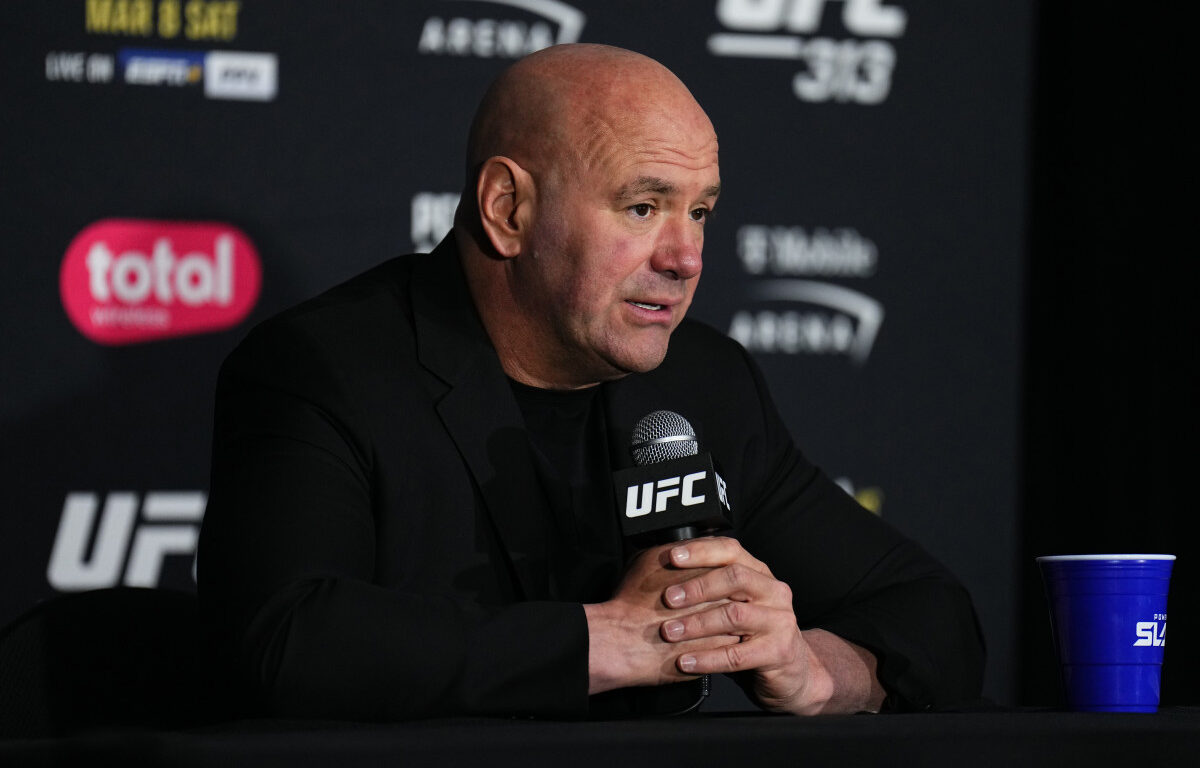‘UFC Model for Boxing’ Critics Slam Muhammad Ali Boxing Revival Act originally appeared on Athlon Sports.
The newly proposed Muhammad Ali American Boxing Revival Act has brought about chaotic discourse within the combat sports world. Introduced by U.S. Representatives Brian Jack (R-Ga.) and Sharice Davids (D-Kan.), the bill seeks to address boxing’s decline in the U.S., where pay-per-view buys have plummeted and major networks like HBO and Showtime have abandoned the sport.
The bill will seek to make additions to the Professional Boxing Safety Act of 1996, a federal statute amended by the Muhammad Ali Boxing Reform Act in 2000. The original 1996 act set nationwide boxing safety standards, like requirements for medical staff at events, and the amendments, colloquially referred to as the “Ali Act,” limited coercive contracts that prevent promoters from controlling boxers indefinitely.

While the bill’s supporters believe this new “revival” could streamline the sport by reducing the influence of fragmented sanctioning bodies, multiple critics warn it may simply replace one flawed system with another, potentially consolidating power in the hands of a few promoters like TKO, the UFC’s parent company.
As combat sports journalist John S. Nash noted in his podcast, “Hey Not The Face!”, “They’re basically making it so the UFC model can work (in boxing).”
“What does TKO feel the need to do?” he explained further, “they feel the need to amend the Ali Act if they want to introduce their own titles… and based on the antitrust case, based on the… legislative history of the Ali Act, controlling the title lets you have more control of the boxers, (gives promoters) more leverage, and allows you to pay (fighters) less.”
One of the most contentious aspects is the UBO model, which mirrors the UFC’s closed-ecosystem approach. UBOs would control their own rankings, titles, and matchmaking, bypassing traditional sanctioning bodies. While this could theoretically eliminate boxing’s notorious politics, it also risks creating monopolistic conditions where promoters dictate terms without oversight.
The timing of the bill is conspicuous, as it is backed heavily by TKO, the company spearheaded by UFC President Dana White, which is partnering with Saudi Arabia’s Turki Alalshikh to launch a boxing promotion. TKO’s first major boxing event, Canelo Alvarez vs. Terence Crawford, is set for September.
In addition to the UBO model, the legislation also promises to establish a national minimum pay of $150 per round and $25,000 in injury coverage, providing better protections for fighters.
While the pay requirement is a clear improvement of minimal pay for club-level boxers in a majority of states, the rising costs of compliance could squeeze small promoters out of the market, funneling talent toward UBOs. In an effort to centralize the sport, the new Act may reduce opportunities for fighters outside the system.
The bill, however, has drawn praise from figures like Lonnie Ali, Muhammad Ali’s widow.
“The sport of boxing provided a pathway for Muhammad to become a global sports and cultural icon,” she said in a press release. “Given its enhanced protections for boxers, I believe Muhammad would be proud to have his name associated with this bill.”
Another endorser of the bill, the Association of Boxing Commissions (ABC), believes it will mitigate the exploitation of the debut fighter.
The ABC President, Michael Mazzulli, said, “This new legislation provides much-needed updates to the Professional Boxing Safety Act of 1996 by enhancing the medical standards that protect boxers, establishing a national minimum payment per round, and defining national minimum health insurance requirements.”
Detractors of the bill, like combat sports lawyer Erik Magraken, however, have been vocal about the lack of transparency from the ABC, which endorsed the bill without consulting athletes or athletic commissioners.
“Some athletic commissioners are telling me they were not consulted about this bill (and) have never seen it before it went public,” Magraken said in a post on X. “What is the ABC board doing supporting this legislation without consulting athletes and ALL voting member commissions?”
The Mixed Martial Arts Fighters Association also sounded off on social media, claiming the ABC “Endorsed this bill without seeking any input from the Athletes Voice Committee or the MMA Fighters Association, who have presented on the Ali Expansion Act multiple times.”
With the bill moving toward a vote, boxing’s stakeholders will have to decide whether or not they will listen to these valid concerns about the legislation’s lack of transparency and its potential to monopolize the sport.
Related: ‘Irrational Beyond Words’ UFC Loudmouth Rejects Settlement Money
Related: Dana White’s Boxing Ambitions Take a Hit as Saudis Control Canelo-Crawford Superfight
This story was originally reported by Athlon Sports on Jul 25, 2025, where it first appeared.
